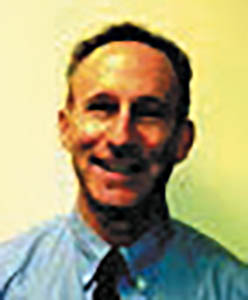
Bereishit: 49:19-21
They had been waiting outside the classroom for over 20 minutes. They could see the parents who were huddled with Rabbi Jacobs by his desk, deep in conversation. But each parent-teacher conference was only allotted 10 minutes on the clock, and these people—who were they, the Reinholds?—had gone well over their time slot.
“Should I say something?” Jonathan asked his wife, not taking his eyes off the group inside the classroom.
“No,” Rebecca said.
“Can I knock on the door, at least?”
“No.”
“Is there anything—“
“Good things come to those who wait, Jon. Be patient.”
Jonathan looked at his watch and sighed. “We’re going to be late for our slot with Morah Rachel.”
“So be it,” Rebecca said, stoically.
The woman was a rock. It was one of the things he loved most about his wife.
Finally, the Reinholds stood. Mrs. Reinhold dabbed a tissue to her eyes. Mr. Reinhold shook Rabbi Jacobs’ hand, and the rabbi put his arm around him and walked him to the door.
Jonathan and Rebecca stood back to let the Reinholds leave and waited until the rabbi was ready for them.
“Who’s next?” Rabbi Jacobs called out from his desk.
Rebecca led the way in, and Jonathan followed.
“Hi, Rabbi. We’re the Feins,” Jonathan said.
“Yes?” Rabbi Jacobs said expectantly.
“We’re Naftali’s parents,” Rebecca added.
“Why, yes, of course you are,” the rabbi said. “I should have realized it as soon as I looked at you. Your son looks exactly like you,” he said to Jonathan. “Please, take a seat.”
They sat in the small classroom chairs that were set up next to the rabbi’s desk, and Rabbi Jacobs took a few moments to look through his marking book and consult his notes.
“There’s really not much to say. Naftali is an excellent student and has a great head for Torah. He’s doing well in class, and it’s a joy to be his teacher.”
Jonathan and Rebecca kept nodding at Rabbi Jacobs, waiting for him to go on.
Rabbi Jacobs sat in his chair and stared calmly at the Feins.
“And?”
“That’s really all I have to say,” the rabbi said. “Do you have any questions?”
“No, not really,” Rebecca said.
“Thanks for coming in,” Rabbi Jacobs said, as he shook Jonathan’s hand and gave Rebecca a friendly nod. He had a nice, warm grip.
Just before the Feins made it to the door of the classroom—three seconds before they could have escaped without Jonathan putting his foot in his mouth—Jonathan turned around to Rabbi Jacobs.
“Rabbi, can I ask you a question?”
“Honey, let’s go now,” Rebecca said.
“Sure, sure, anything.”
“Why is it that the last couple was in here for, like, half an hour, and we’re given about one minute of your time? Is our son less important than theirs?”
“Oy,” Rebecca muttered under her breath.
Rabbi Jacobs smiled. “You know, Mr. Fein, in this week’s parsha, Yaakov gives each of his sons a bracha, a blessing.”
“Yes, I’m familiar with Vayechi,” Jonathan said.
“Good! So can you tell me, how many words are in Gad’s bracha from his father?”
“Um, I’m familiar with the parsha, but I’m not that familiar with it, Rabbi.”
“Wait, I’ll get you a Chumash.” And the rabbi opened the Chumash to the appropriate page and handed it to Jonathan.
“It’s six words,” Jonathan said.
“Good,” Rabbi Jacobs said. “And in those six words, Yaakov gives his son a beautiful blessing that his children will be great soldiers and leaders. How about Asher’s bracha? How many words?”
Jonathan counted. “Six.”
“And in those brief words he blesses him with the abundance that will feed kings. And how about Naftali? How many words?”
“Six as well,” Jonathan said.
“And he blesses him as a swift deer who delivers beautiful thoughts. Now, Reuven’s bracha, is it longer or shorter?”
Jonathan flipped back two pages in the chumash. “It’s considerably longer.”
“Yes, but it isn’t necessarily as kind, is it?”
“No, not really.”
“And Shimon and Levi fared even worse with their longer blessing.”
“True,” Jonathan agreed.
“It’s kind of the same way with parent-teacher conferences,” Rabbi Jacobs said. “You should hope for a nice, brief meeting. Know what I mean?”
“Yes, I see your point,” Jonathan said. “Thank you, Rabbi.”
“Don’t mention it.”
By Larry Stiefel










